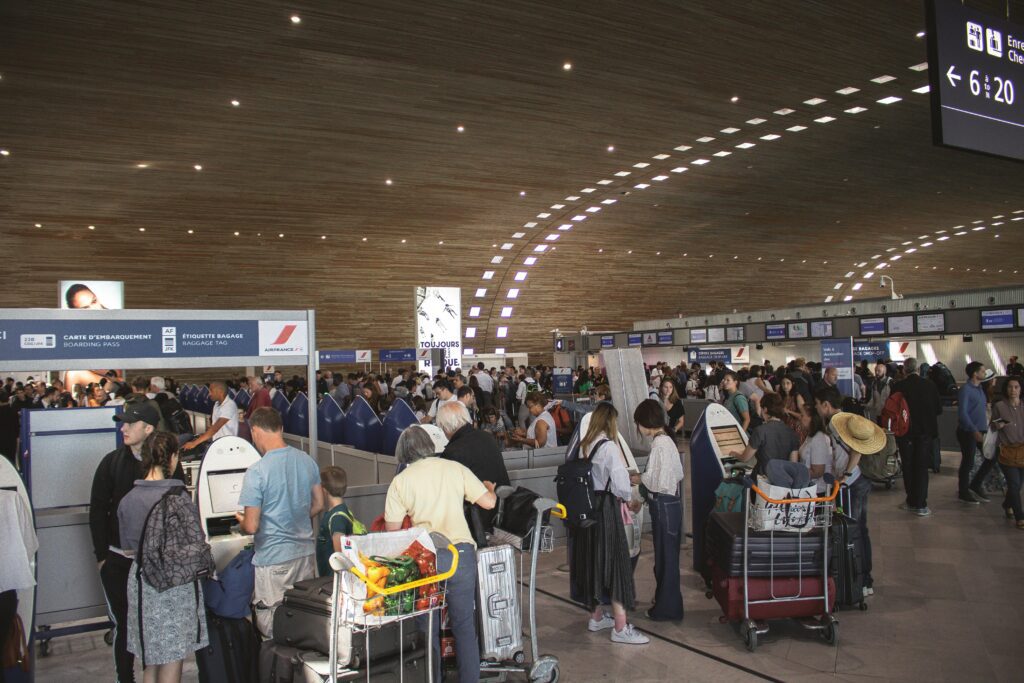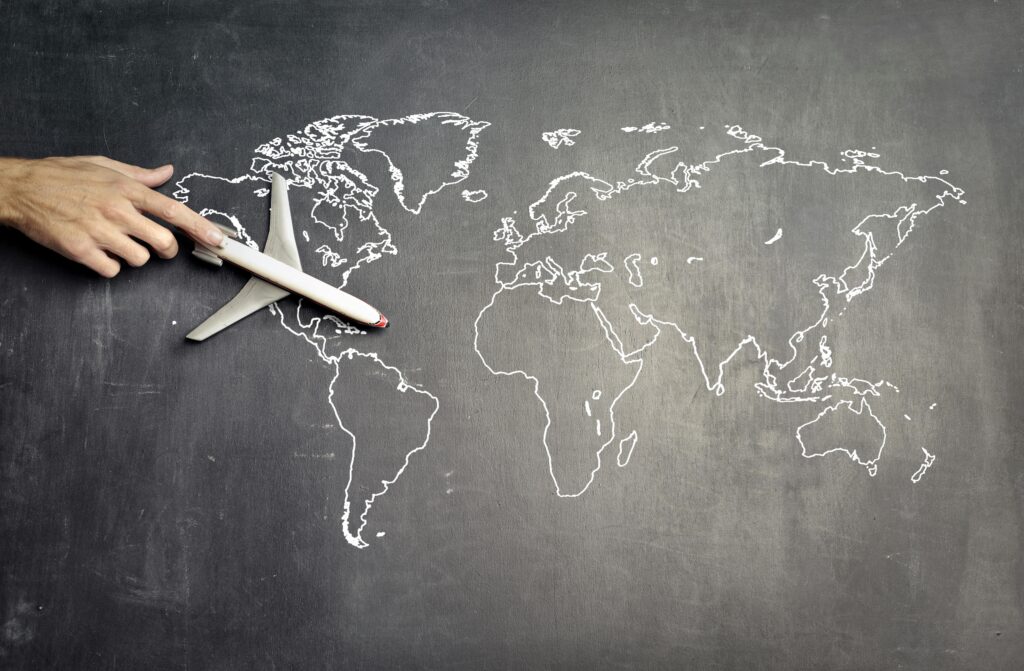Traveling abroad is an exciting opportunity to explore new cultures, cuisines, and landscapes, but safety is a top priority to ensure a memorable experience. “How to plan a safe international trip” captures the essence of preparing for a secure and enjoyable journey. Whether you’re a seasoned traveler or embarking on your first international adventure, careful planning can mitigate risks and enhance your trip.
This article provides practical, actionable advice for safe travel, naturally incorporating supported keywords like travel safety tips, international travel precautions, safe travel planning, and travel safety essentials to guide you every step of the way.
Research Your Destination Thoroughly
Before booking your trip, dive into research about your destination to understand its safety landscape. Check the U.S. State Department’s travel advisories for up-to-date information on political stability, crime rates, and health risks. For example, as of September 2025, some countries may have Level 2: Exercise Increased Caution advisories due to petty crime or health concerns like Dengue outbreaks.
Learn about local customs, laws, and cultural norms to avoid unintentional offenses. Researching safe neighborhoods, reliable transportation, and emergency contacts is a key part of safe travel planning that builds confidence for your journey.
Secure Travel Documentation
Proper documentation is a cornerstone of international travel precautions. Ensure your passport is valid for at least six months beyond your return date, as many countries require this. Check visa requirements well in advance—some destinations, like Cuba, require an eVisa applied for a week before travel.
Make digital and physical copies of your passport, visas, and travel insurance documents, storing them separately in case of loss or theft. Register with your country’s embassy through programs like the U.S. Smart Traveler Enrollment Program (STEP) to receive alerts and assistance if needed.
Invest in Comprehensive Travel Insurance
Travel insurance is one of the most critical travel safety essentials. It covers unexpected events like medical emergencies, trip cancellations, or lost luggage. Choose a policy that includes health coverage, especially in countries with limited healthcare access, and verify it covers activities like adventure sports if applicable.
In 2025, with ongoing global health concerns, ensure your insurance addresses pandemic-related disruptions. Compare plans from reputable providers and read the fine print to understand coverage limits, a vital step in safe travel planning.
Prioritize Health Precautions
Health safety is non-negotiable when traveling internationally. Visit a travel clinic 4–6 weeks before departure to get recommended vaccinations or medications, such as malaria prophylaxis for certain regions. The CDC advises precautions against diseases like Dengue or Oropouche in tropical areas as of November 2024.
Pack a small health kit with essentials like prescription medications, hand sanitizer, insect repellent, and face masks. Staying hydrated and eating at reputable establishments further supports international travel precautions to keep you healthy on the road.
Plan Safe Transportation and Accommodations

Choosing secure transportation and lodging is essential for a worry-free trip. Research reputable airlines, trains, or bus services with strong safety records, and avoid unofficial taxis in unfamiliar areas—opt for rideshare apps or pre-arranged transfers instead.
For accommodations, book hotels or rentals in safe, well-reviewed areas, checking for features like 24/7 security or backup power in regions with unreliable grids, like parts of Cuba in 2025. Reading recent traveler reviews on platforms like TripAdvisor ensures your choices align with travel safety tips.
Stay Connected and Informed
Maintaining communication is a key travel safety essential. Purchase a local SIM card or an international data plan to stay connected, especially in areas with limited Wi-Fi. Download offline maps, translation apps, and emergency contact apps like GeoSure for real-time safety updates. In destinations with political unrest or protests, like those noted in some countries in 2025, avoid demonstrations and monitor local news to stay informed.
Protect Your Valuables and Personal Information
Safeguarding your belongings and data is critical for safe travel planning. Use a money belt or hidden pouch for cash, cards, and passports, and avoid flashing valuables in public. Be cautious with public Wi-Fi—use a VPN to protect sensitive information like banking details.
In 2025, cybercrime remains a concern, so enable two-factor authentication on your accounts. Split cash reserves across multiple locations, such as your hotel safe and day bag, to minimize loss from theft, aligning with travel safety tips for peace of mind.
Practical Travel Safety Tips for a Smooth Journey
Here are actionable travel safety tips to incorporate into your planning:
- Blend In: Dress and behave in ways that respect local culture to avoid drawing attention as a tourist.
- Stay Vigilant: Be aware of your surroundings, especially in crowded areas prone to pickpocketing.
- Learn Basic Phrases: Knowing key phrases in the local language, like “help” or “emergency,” can be invaluable.
- Carry Emergency Contacts: Have local emergency numbers and your embassy’s contact information handy.
- Trust Your Instincts: If a situation feels unsafe, leave immediately and seek a safer environment.
Overcoming Common Travel Challenges
International travel can present obstacles, but preparation helps overcome them:
- Language Barriers: Use translation apps or carry a phrasebook to communicate effectively.
- Jet Lag: Adjust your sleep schedule before departure and stay hydrated to minimize fatigue.
- Cultural Missteps: Research customs, like dress codes or tipping etiquette, to avoid misunderstandings.
- Unexpected Delays: Build flexibility into your itinerary to handle flight or transportation disruptions.

The Importance of Flexibility in Safe Travel
Flexibility is a hidden gem in safe travel planning. Unexpected events, like weather disruptions or local outages, can affect your trip. In 2025, for instance, some destinations face power grid challenges, requiring travelers to adapt with backup plans, like choosing accommodations with generators. A flexible mindset allows you to pivot without stress, ensuring safety and enjoyment. Always have a Plan B, such as alternative routes or activities, to stay prepared.
Why Safe Travel Planning Matters
Planning a safe international trip isn’t just about avoiding risks—it’s about maximizing enjoyment and peace of mind. By researching destinations, securing documentation, and prioritizing health and safety, you create a foundation for a rewarding experience. International travel precautions protect you from physical, financial, and emotional setbacks, letting you focus on the joy of exploration. A well-planned trip empowers you to immerse yourself in new cultures with confidence.
Conclusion
Knowing how to plan a safe international trip is the key to unlocking unforgettable adventures in 2025. By researching your destination, securing travel insurance, prioritizing health, and following travel safety tips, you can navigate the world with confidence.
Incorporate travel safety essentials like emergency contacts and secure accommodations, and stay adaptable to handle challenges. With careful safe travel planning, you’ll not only stay safe but also create memories that last a lifetime.
Start planning today and embark on your next international journey worry-free!
FAQs About Planning a Safe International Trip
What is the best way to plan an international trip?
Research your destination, secure a valid passport and visa, book reliable transportation and accommodations, purchase travel insurance, and create a flexible itinerary to ensure a smooth and safe trip.
How do you ensure a safe trip?
Ensure a safe trip by checking travel advisories, packing a health kit, using secure payment methods, staying connected with offline apps, and avoiding risky areas or behaviors.
Which country is best for a first international trip?
Canada or the UK are great for first-time international travelers due to their safety, English-speaking environments, and accessible infrastructure, making navigation easy for beginners.
How to plan an international group trip?
Plan a group trip by choosing a destination everyone agrees on, coordinating travel dates, booking group-friendly accommodations, assigning roles for logistics, and ensuring clear communication and safety plans.

